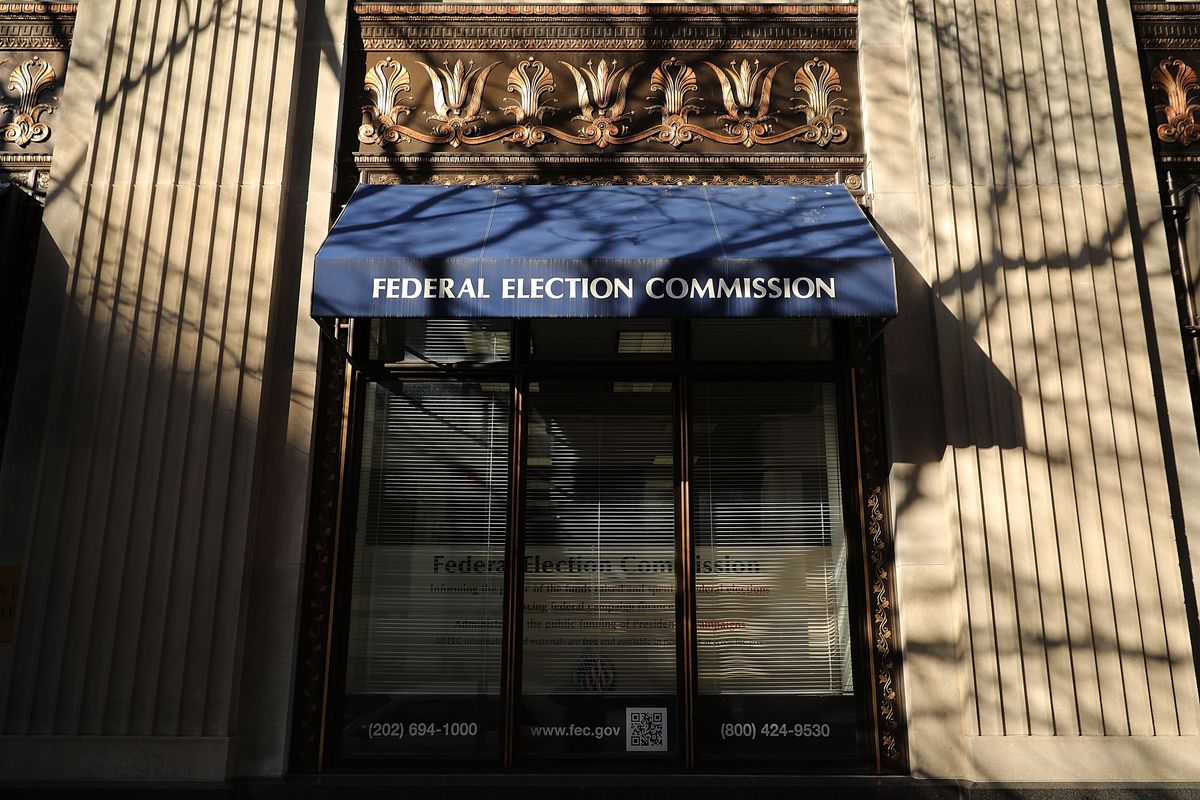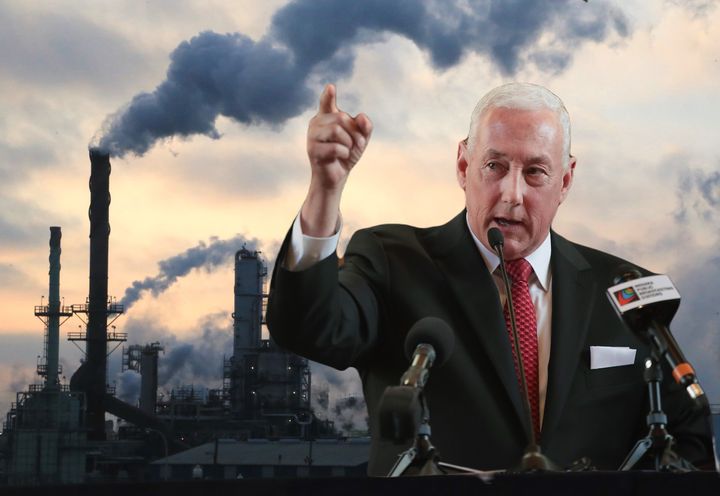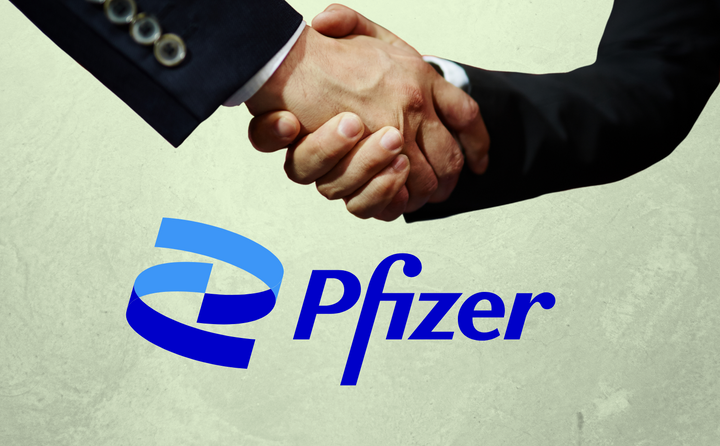Government Contractors Are Making Political Contributions, Despite Longstanding Ban
Federal election law prohibits these kinds of donations because of concerns over pay-to-play government contracting, but contractors are still making them—and the FEC is not actively working to stop them.

In the 2018 election cycle, at least seven companies that had active contracts with the federal government made donations to PACs despite such contributions being illegal under the Federal Election Campaign Act. Recent post-general disclosures filed with the Federal Election Commission (FEC) revealed at least two political contributions from contractors, and several other such contributions were identified by campaign finance watchdog group Campaign Legal Center (CLC) and by money-in-politics reporters earlier in 2018.
Louisiana-based Alpha Marine Services, which has active contracts with the Department of Defense worth more than $80 million, gave $100,000 to a super PAC aligned with Republican House leadership, the Congressional Leadership Fund, in June 2018. Also giving to the Congressional Leadership fund was multinational conglomerate 3M, which contributed $50,000 in November 2018. 3M has dozens of active contracts with multiple government agencies, including two large contracts with the Department of Defense worth more than $53 million.
A third company, Michigan-based KMW Group, contributed $10,000 in July 2018 to Outsider PAC, which spent money in support of unsuccessful Michigan Republican Senate candidate John James. In November 2018, KMW Group subsidiary Skytron LLC, which has active contracts with the Veterans Department and the Department of Health and Human Services, contributed another $10,000 to Outsider PAC, prompting a complaint from CLC regarding its seemingly illegal contribution. Following the complaint, Outsider PAC amended its filing with the FEC to reattribute the contribution to KMW Group. However, KMW Group is also a government contractor and had an active contract with the Department of Veterans Affairs worth nearly $500,000 at the time of that contribution and the one it made in July.
Since 1940, companies that have contracts with the government or are in negotiations to secure contracts have been banned from making “any contribution of money or other things of value, or to promise expressly or impliedly to make any such contribution to any political party, committee, or candidate for public office or to any person for any political purpose or use.” The contractor contribution ban has been upheld by federal courts after the 2010 Citizens United v FEC decision, most recently in the Wagner decision.
The reason for the ban, as explained by the CLC’s federal reform program director, Brendan Fischer, is to prevent pay-to-play in the contracting process.
“Handing out taxpayer-funded government contracts to political contributors not only looks bad, but it warps government priorities,” Fischer said. “Federal contractors have a lot to gain by making large contributions to super PACs, and decisions about which private companies are handed taxpayer money should be based on the public’s interest, not what’s in the interest of a politician’s biggest donors.”
Indeed, some of the politicians who benefitted from 2018 election spending by the super PACs funded by the government contractors have the power to influence government policies that could affect those contractors, and they could even influence the contracts themselves.
For example, Rep. Will Hurd (R-Texas) benefitted from more than $1 million that was spent by the Congressional Leadership Fund on independent expenditures opposing his 2018 Democratic challenger, Gina Ortiz Jones. Hurd sits on the House Appropriations Committee, which approves spending for all government operations and contracts. He is also a member of the Appropriations Committee’s Subcommittee on Military Construction and Veterans Affairs, which has jurisdiction over the agencies with which Congressional Leadership Fund donors 3M and Alpha Marine Services have active contracts.
Rep. Don Bacon (R-Neb.) is a member of the House Armed Services Committee, which has broad jurisdiction over defense policy, including acquisitions and contract workforces. The Congressional Leadership Fund spent $63,000 supporting Bacon in his 2018 election and $1.2 million against his Democratic opponent, Kara Eastman. Other beneficiaries of Congressional Leadership Fund spending who sit on committees with jurisdiction over issues affecting the PAC’s contractor donors include Foreign Affairs Committee members Reps. Steve Chabot (R-Ohio) and Brian Fitzpatrick (R-Pa.) and Appropriations Committee member Rep. Jamie Herrara Beutler (R-Calif.).
Despite the conflicts of interest that are presented when government contractors make illegal political contributions, the FEC is not proactively working to check for these donations in order to enforce the prohibition.
“To my knowledge [the FEC] is not reviewing reports for any potential contractors, so they really rely on outside groups to file complaints,” Fischer explained. “It’s not something that they’re undertaking on their own.”
With this lack of government review, CLC and other watchdog groups have taken on this task. CLC reviews super PAC filings from the FEC and cross-references corporate contributions against lists of companies with active government contracts that are publicly available at the usaspending.gov website. However, there is no way for the group to check if companies making contributions are in negotiations for contracts, something that would be illegal under the Federal Election Campaign Act, because that information is not typically made available to the public.
Other political donations by government contracts have also been discovered, including some from GEO Acquisitions II, a wholly owned subsidiary of private prison giant GEO Group, which has valuable contracts with U.S. Immigration and Customs Enforcement (ICE). In April, GEO Acquisitions II gave $125,000 to New Republican PAC, a super PAC that spent more than $30 million to support Sen. Rick Scott’s (R-Fla.) election. Other contributions from contractors like Haworth, Ashbritt, and Ring Power Corporation have been refunded or reattributed to the companies’ executives following complaints filed by CLC.




Comments ()